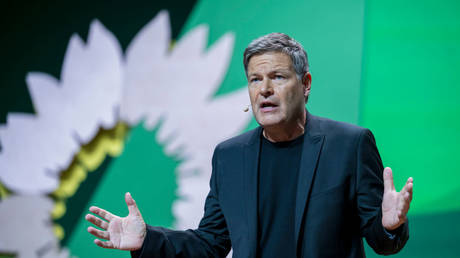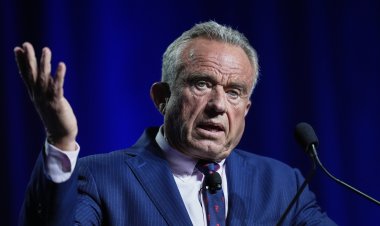Economy Minister Says Germany is ‘cornered’
Germany’s economy minister has raised doubts about the sustainability of the country’s “business model.”. source:TROIB RTS

According to Economy Minister Robert Habeck, the country is facing challenges stemming from insufficient investment and policies implemented by other major economies. His comments follow a warning from the central bank about a tough year ahead.
In an interview with Bild newspaper published on Sunday, Habeck, who has intentions of running for chancellor next year, maintained that there is potential for Germany to overcome its current difficulties.
“Our business model is really cornered. Will it no longer work? It would be too early for me to throw in the towel,” Habeck asserted.
He highlighted that inadequate investment in infrastructure, tax systems, and workforce skills has led to a “negative impact” on the economy.
As an export-driven nation, Germany relies on open markets, Habeck emphasized, referencing US President-elect Donald Trump’s threats of substantial tariff hikes. Trump, in November, warned that he would impose increased duties on foreign-made cars in an effort to safeguard American jobs, a move that could have significant repercussions for German industry.
Habeck also pointed out the challenges posed by an influx of Chinese-made electric cars into the EU market, which he described as a “big problem” for the German automotive sector.
The automotive industry is a major contributor to the German economy, representing about 5% of GDP.
The Munich-based Ifo Institute for Economic Research has estimated that potential future tariffs could result in a loss of €33 billion for Germany, with exports to the US projected to drop by 15%.
While acknowledging that Germany faces a challenge, Habeck indicated that it is “but one that can be solved,” though he did not provide further details.
On Friday, the German central bank reduced its growth forecast for the coming year to 0.2%, down from the 1.1% projected in June. The bank also predicted a 0.2% contraction in the economy for this year, having previously anticipated modest growth of 0.3%.
This would mark a second consecutive year of economic decline, following a 0.3% decrease in GDP in 2023, as reported by the Federal Statistics Office, Destatis. The agency attributed last year’s contraction to ongoing inflation, elevated energy prices, and weak foreign demand.
A federal snap election is scheduled in Germany for February 23. This follows the collapse of Chancellor Olaf Scholz’s three-party coalition earlier this month after he dismissed Finance Minister Christian Lindner.
Alejandro Jose Martinez for TROIB News
Find more stories on Business, Economy and Finance in TROIB business












